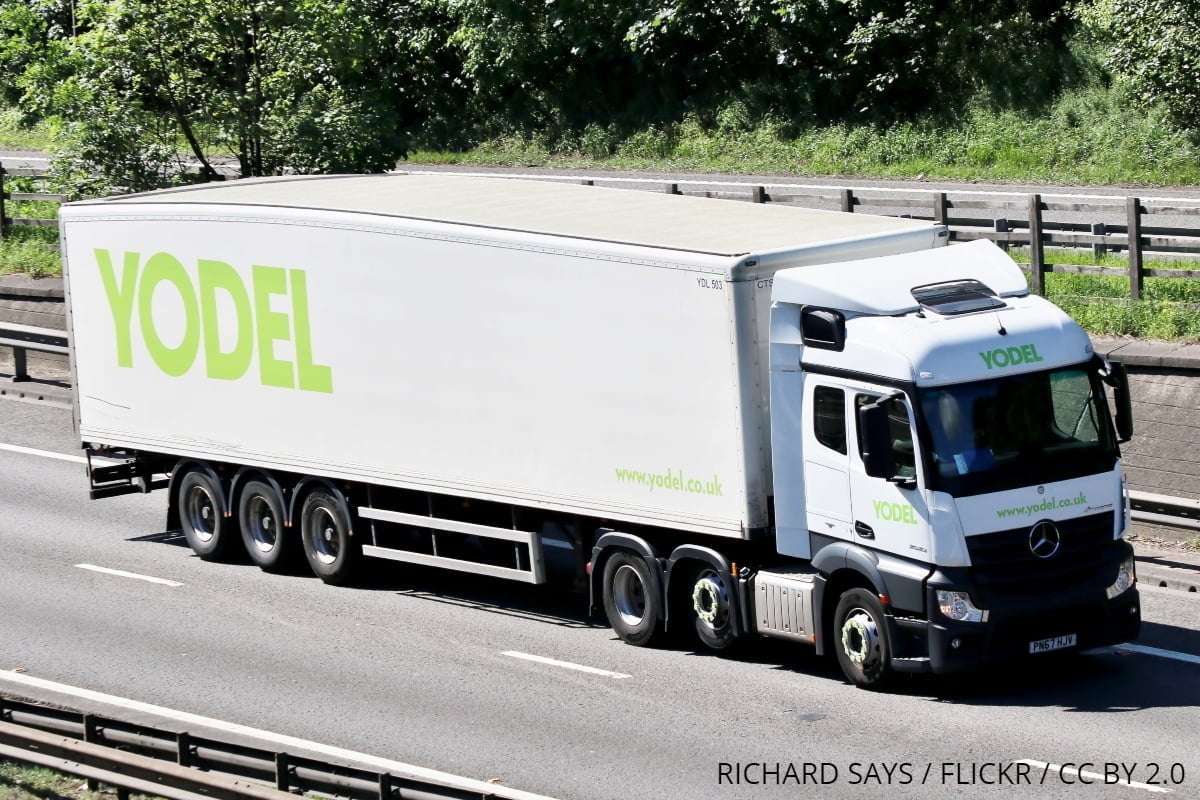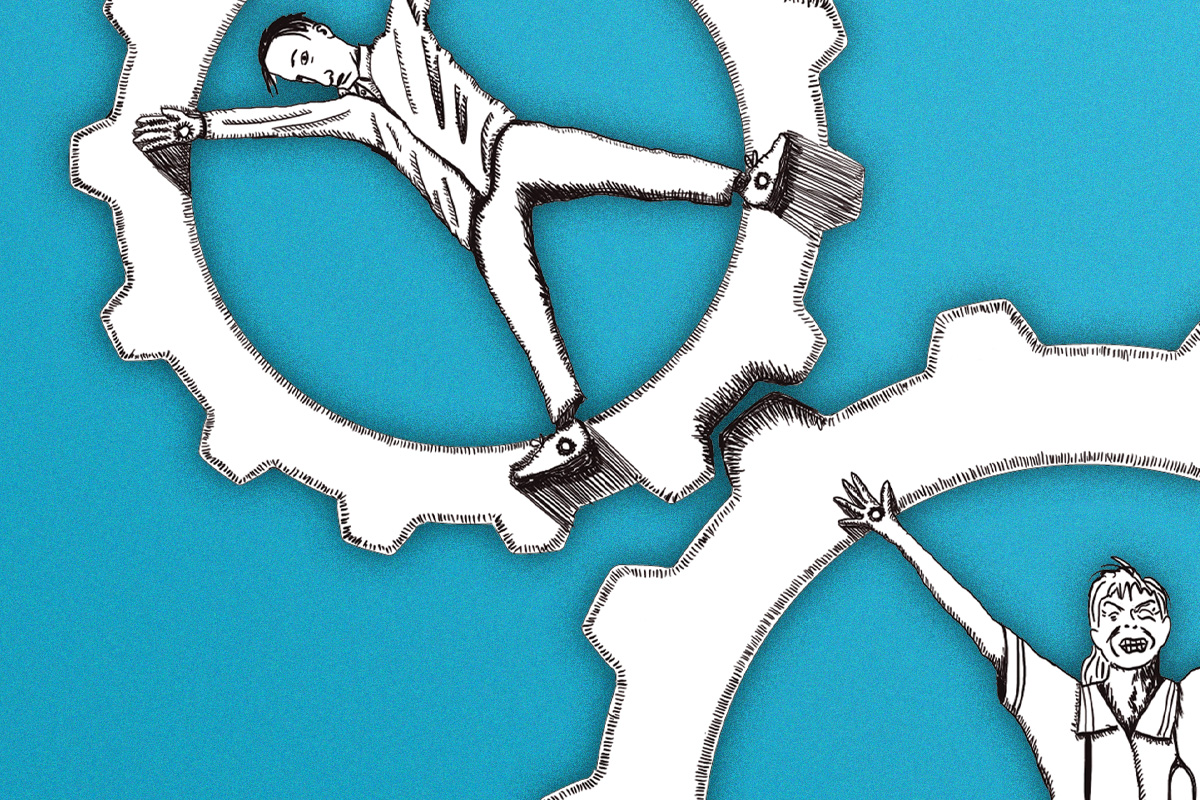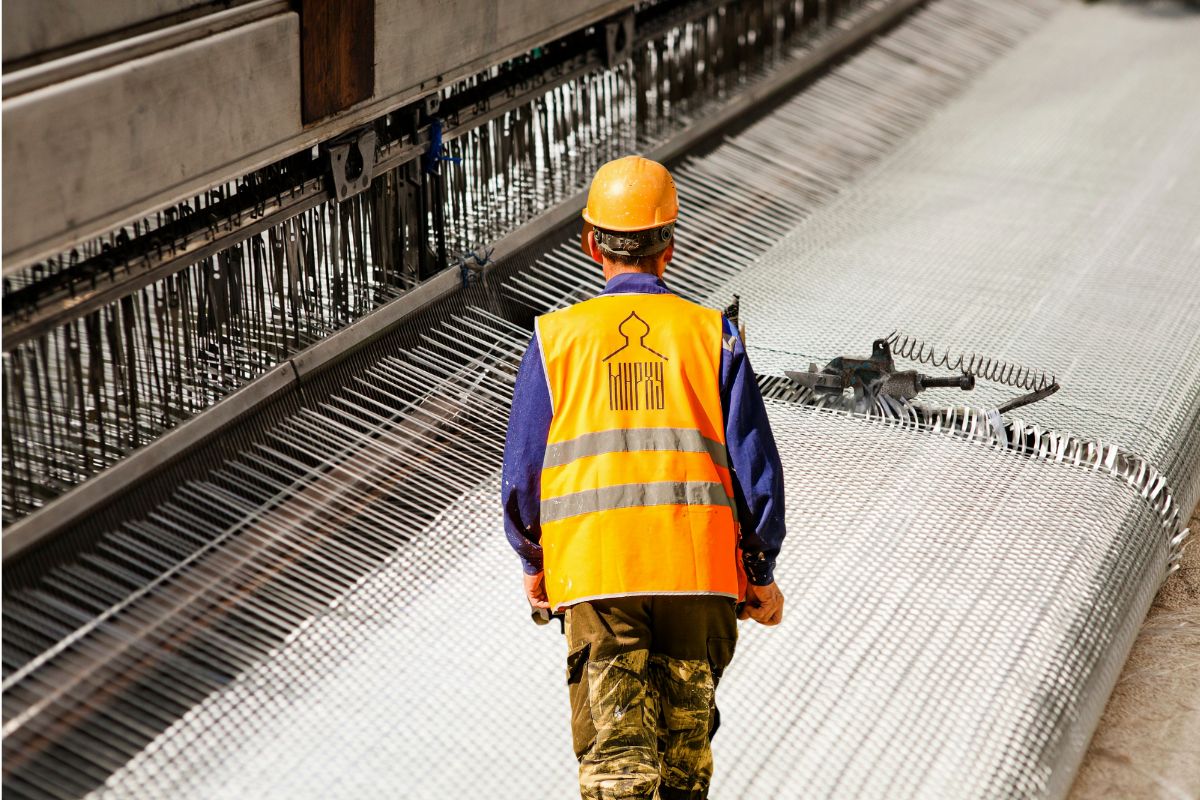GMB members at delivery company Yodel are balloting for strike action over pay and conditions. With supply chains already at breaking point, UK lorry drivers hold huge power. The unions must mobilise workers to hit back against the bosses.
Delivery giant Yodel faces the prospect of a network standstill during its busiest period, with the GMB union balloting the company’s drivers about possible strike action in the run-up to Christmas.
In a typical show of shrugging indifference towards its workers, the courier firm – despite soaring revenue – has ignored its commitments to its lorry drivers.
Widespread anger has built up amongst drivers, due to staff shortages, stagnant wages, outstanding pay claims, increasingly precarious working conditions, and agency workers being paid more than directly-employed drivers for the same work.
GMB’s strike ballot for Yodel lorry drivers opened on 25 August, and will close this week on 15 September. If an agreement is not reached in time, the union and its members are threatening to take industrial action up and down the country in December.
Shortages
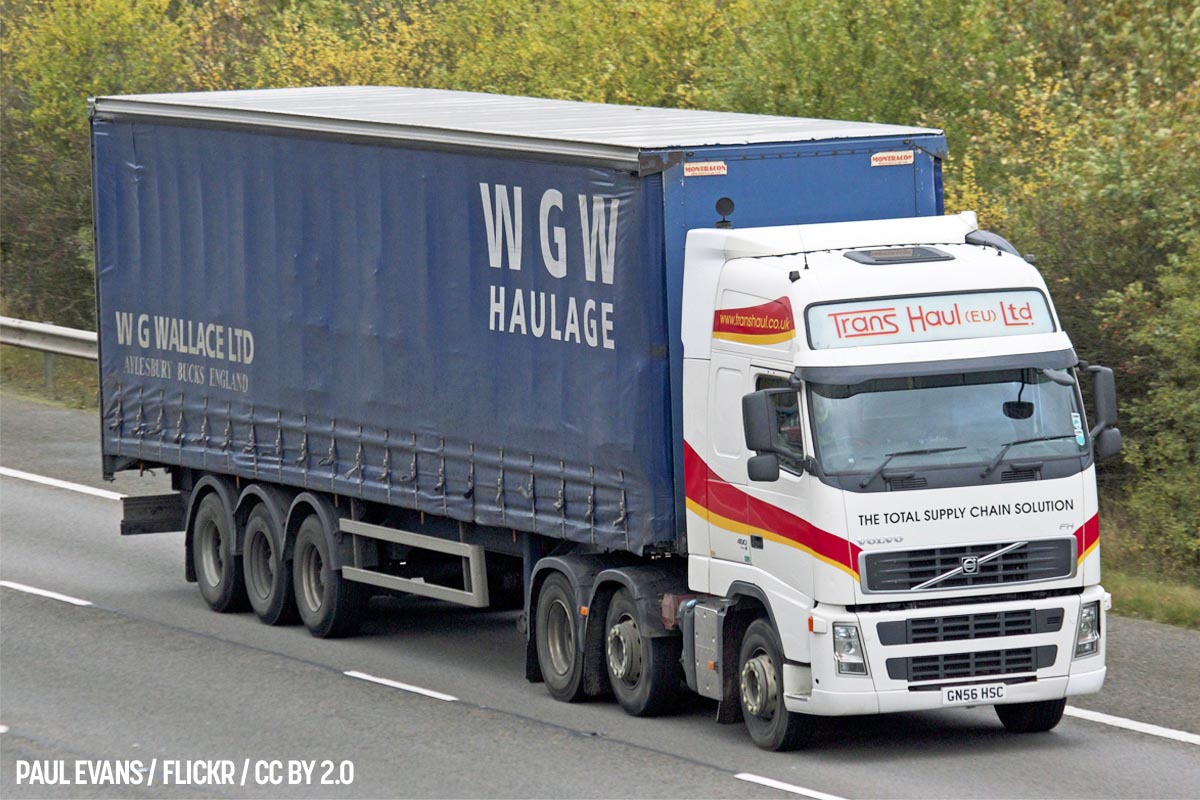 This comes at a time when Yodel and other delivery companies are already facing mass shortages.
This comes at a time when Yodel and other delivery companies are already facing mass shortages.
Drivers are walking out over dreadful working conditions, and the bosses are failing to recruit replacements. The COVID-19 pandemic has meant that some 28,000 drivers’ tests have been cancelled. And thousands of workers have been forced to self-isolate.
The Road Haulage Association also estimates that Britain is short of a further 15,000 lorry drivers due to the impacts of Brexit, exacerbating this labour shortage crisis.
The combination of these factors is figured at an approximate shortfall of 100,000 drivers nationally. With lorries overseeing the transportation of 89% of Britain’s goods, any stoppage of work would have an enormous effect.
Exploitation
Nadine Houghton, a national officer at GMB, has called Yodel’s actions a “truly staggering act of self-sabotage”.
But there is nothing surprising or new about this problem – it has been building up across the sector for years, with ruthless bosses attempting to squeeze more profit out of their workforces in order to compete against their rivals.
Houghton lists the issues that have tipped the drivers over the edge: “Disrespect and disregard to the needs of drivers, including denied access to toilet facilities; increased responsibility; and finally, massive exploitation. All of this with wages going down, not up.”
The names of the exploiters may change, but these complaints are as old as class struggle itself.
Militancy
Such treatment, however, is provoking a militant response from workers. Threats of strike action are breaking out across the haulage and distribution sector, with drivers everywhere facing the same attacks on pay and conditions.
And it is clear that militancy pays. For example, over 90 HGV drivers working for Argos in the north west – organised by Unite – have secured a massive 31% pay increase by displaying a show of strength to their employers, Wincanton.
So fearful were the bosses of any stoppage, that this wage rise was won without the workers even having to strike. This is literal proof of an old saying within the labour movement: that not a wheel turns without the permission of the working class!
Action
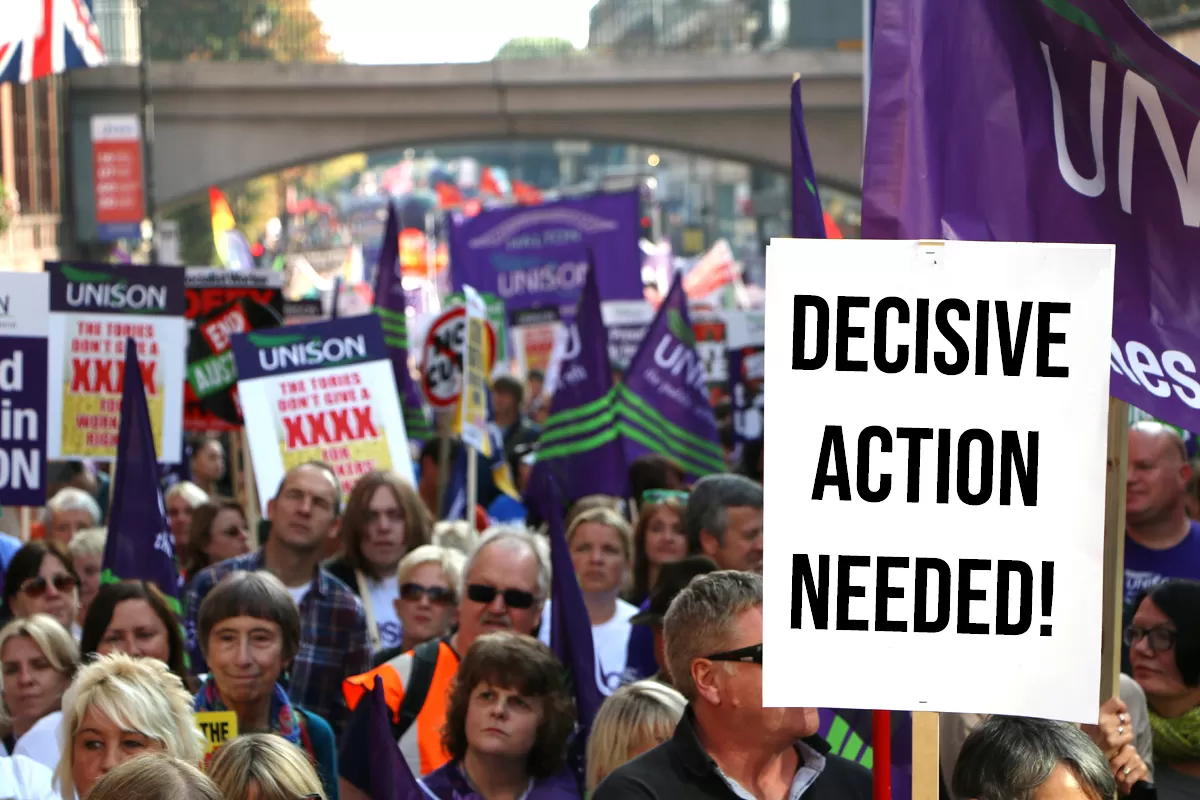 With workers facing deteriorating conditions across the industry, there has never been a more important time to fight back. The strike ballot amongst Yodel drivers is therefore a welcome development.
With workers facing deteriorating conditions across the industry, there has never been a more important time to fight back. The strike ballot amongst Yodel drivers is therefore a welcome development.
Other unions – such as Unite and the United Road Transportation Union – should organise and support the drivers’ demands, linking up with GMB members to coordinate joint action, where possible.
It is clear that the country’s delivery drivers – if organised and united – have enormous potential power. By withdrawing their labour, they can quickly bring the economy to a halt. This shows who truly is essential to the running of society: the workers, not the bosses.
Planning
Alongside organising united, militant action to improve drivers’ pay and conditions, the unions must link these struggles to political demands that tackle the root of the problem: the profit-driven capitalist system, which is responsible for economic chaos and brutal exploitation.
The alternative can only be a socialist planned economy, run by and for the working class. This means calling for public ownership of the big haulage, logistics, and distribution firms, to be run under workers’ control, and without compensation.
Only in this way can we put an end to the profit-maximising anarchy of capitalism, and the race to the bottom inflicted on workers by the bosses.

